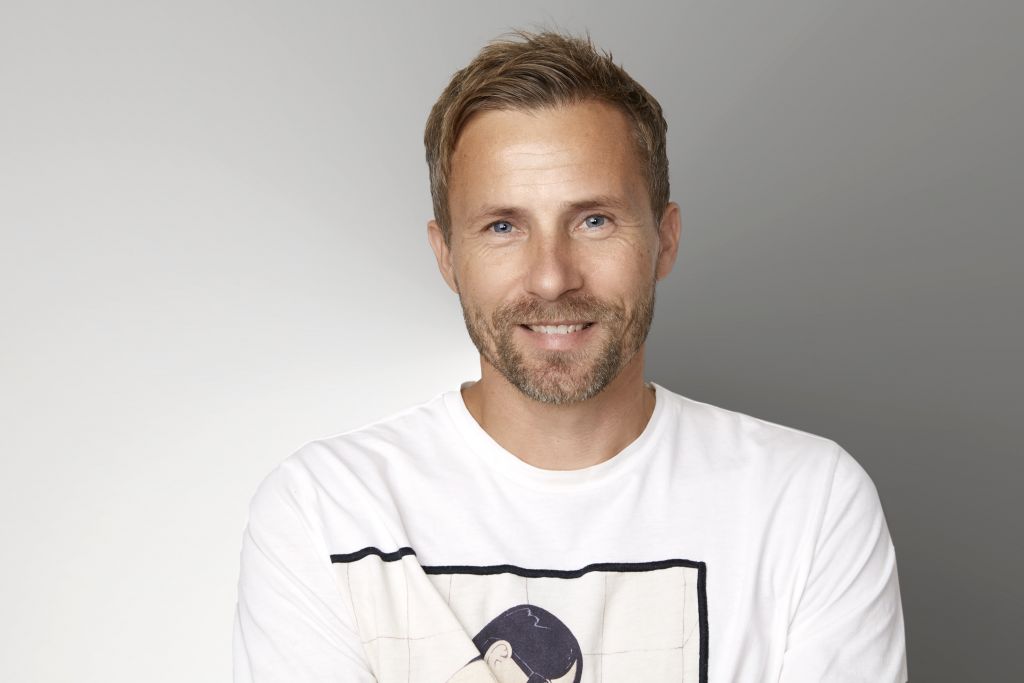Bachelor program hatches its first graduates: “These students took the chance and spent their high grade-point averages on this education program though they didn’t quite know what to expect”

Frederik Würtz Mouritsen is the first student to graduate from the bachelor in Business Administration and Digital Management. (Photo: Private)
The Bachelor in Business Administration and Digital Management was a hair’s breadth from not being accepted by the ministry, but immediately ranked among the most-sought-after programs at CBS after its launch in 2018. Now, the first student has obtained a bachelor, and the Program Director and Program Manager evaluate the first three years – and look ahead. Will the bachelor get a master’s degree?
In April 2018, CBS announced it would get a new bachelor program. “A bachelor that even Mark Zuckerberg can learn from,” CBS WIRE wrote about the BSc in Business Administration and Digital Management.
Now, three years later, its first students are graduating.
“I have looked forward to this moment when the first students graduate. For me, it’s a special class and a wonderful bunch of people. They took the chance and spent their high grade-point averages on this education though they didn’t quite know what to expect, as it was still under construction when they started,” says Mikkel Flyverbom, Professor MSO and Program Director of the bachelor program.
However, it was just by a hair’s breadth that the program was even accepted by the ministry, explains Mikkel Flyverbom.
“At first, the ministry said no. It criticized the cross-disciplinary approach and that it was in English. But in an appeal, we had partners in the industry pointing out the necessity of such a program, and in January we got the green light, which gave us just about a few months to promote the program to potential applicants,” he says.
After the application deadline at the beginning of July in 2018, the new bachelor’s program received 833 qualified applications for the program’s 90 study places. The program ranked number four on the list of programs with the highest entry points, with a 10.7 grade-point average.
Liaising between business and technology
Back in 2018, Frederik Würtz Mouritsen was lucky enough to enroll for the new program, and he is the very first to graduate.
“It’s feels great to have reached this point,” he says over the phone during a break at work.
When Frederik Würtz Mouritsen applied for the program, he had no qualms about applying for a program where he would be among the very first students to take it and therefore had no reviews as the basis for his decision.
“When I started looking for bachelor programs, I considered HA Almen and International Business, but I felt like they lacked the digital and technological dimensions. So when I read about Digital Management and how it can help liaise between business and technology, I was hooked,” he says.
When he was enrolled, the vision of the program and some of the courses and subjects were described, but the students were a crucial part of developing the content as the program progressed, explains Mikkel Flyverbom.

Mikkel Flyverbom is graduating the first batch of Digital Management students this summer. (Photo: Private)
“I have made decisions about the program together with the students, whose input has helped me develop the program. I have never tried anything like it when it comes to students showing engagement in creating a program and being this patient at the same time. Nothing had run before, and back then, I didn’t tell the students that it was a sort of fiction they had signed up for. We only had the first three courses fully in place, so everyone had to lay the tracks while running,” he says.
Digital soldiers
Being accepted to a new program often means you need to explain what the program is about and what competences you end up with. Frederik Würtz Mouritsen has experienced that too, but it has been easy to explain the outcome of the program, he explains.
“When I talk about the program and explain to people that businesses will become more tech-driven, and that we need graduates with insights in both business and technology to solve possible challenges and drive innovation, most people understand this,” says Frederik Würtz Mouritsen.
For him, the biggest takeaway from the program is the in-depth understanding of how society is built on private companies that control the digital infrastructure, such as social media, he explains:
“It’s easy to forget how much information you share on social media platforms, and how easy it is to fiddle with, for example, reviews on social media. We have worked with cases on restaurants that got hyped by fake reviews. And as a Digital Management student, you are more attentive to this and more critical, as you have the background knowledge about the digital and technological structures,” he says.
I think of them as small soldiers with data-driven approaches marching out and setting the agenda in terms of how we can think of digital transformations in more nuanced ways
Mikkel Flyverbom
Mikkel Flyverbom sees the newly hatched batch of Digital Management students as a group of soldiers with the capabilities to drive digital transformation.
“In the vision for the program, we want graduates who, on the one hand, are very CBS-like with an understanding of business and economy, but who also think digitally with a data-driven mindset. Students who know that everything you do has consequences for people, politics and the surrounding society,” he says and continues:
“Personally, I think of them as small soldiers with data-driven approaches marching out and setting the agenda in terms of how we can think of digital transformations in more nuanced ways. An army that will seep into various organizations and businesses.”
Not based on business as usual
Now that the first batch of students are about to graduate, the program foundation has been laid. And nothing about that process has been based on a ‘business as usual’ approach, explains the Program Manager, Lene Mette Sørensen, who joined in 2019.
“We didn’t have a predefined model for the program. That meant we could cherry pick teaching methods, courses and generally decide for ourselves how we wanted the program to unfold, all in collaboration with the students,” she says.
However, creating a helpful and curious culture among the students has been a priority for both Lene Mette Sørensen and Mikkel Flyverbom. That involved introducing a grade-free first semester, for example.
“The students are an ambitious bunch who set high standards, but still they help each other, share notes and ask each other for advice. They don’t see each other as competitors but pat each other’s backs when they get high grades, and the teachers sense this. I often hear teachers talking about how great it is to teach Digital Management students, as they are curious, ask a lot of questions and are talkative,” she says.
Digital Management 2.0?
Frederik Würtz Mouritsen has applied for a master’s degree at IE Business School in Madrid, and according to Mikkel Flyverbom, the bachelor’s students have plenty of opportunities to combine their Digital Management bachelor with specialized master’s programs.
“There’s no one specific way for the students to go. Some want to pursue a master’s in finance, others want to dive deeper into aspects of leadership and management, while others want to become more tech-savvy,” he says.
As it is right now, there is no master’s in Digital Management. But will there ever be?
“I would love to develop a new master, but as the situation stands right now, I don’t think it would make much sense. If you look at the portfolio of CBS programs, far from all students take the master’s that naturally fit with their bachelor’s degree. And I don’t think a copy of Digital Management in a master’s format is the most obvious,” he says and continues:
“I would rather look at the existing portfolio and see whether we can include digital transformation in the master’s programs we already have.”
All in all, Mikkel Flyverbom is proud of the program and the first batch of students who will graduate this summer, and he has just one wish.
“My dream is to celebrate the students, and I’m so worried that will not happen. I just want to be able to throw a great graduation event for them, their friends and families. That’s the most important thing right now.”





































































































































Comments